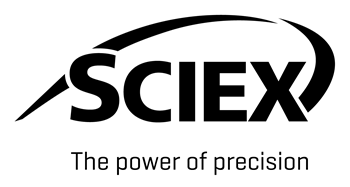In the fifth episode of Tox Chat Box, SCIEX’s forensic toxicology vodcast, host Pierre Negri sat down with Dr Tina Binz, head of the Center for Forensic Hair Analytics at the Zurich Institute for Forensic Medicine, to discuss the cutting-edge developments in the field.
They explored the complexities and challenges in detecting trace levels of drugs and metabolites in keratinized matrices, namely hair and nails.

Image Credit: kittirat roekburi/Shutterstock.com
Focus on forensics
Dr. Binz’s lab has been aiding forensic investigations for over a decade and plays a key role in the Swiss criminal justice system. Dr Binz’s forensic team addresses cases ranging from post-mortem toxicology and drug-facilitated crimes to license reinstatement and child custody disputes.
The team specializes in the detection of substances using LC-MS/MS workflows optimized for hair and nail analysis.
“Hair and nails provide a long detection window, spanning several months,” Dr. Binz said.
“It makes them ideal for investigating drug consumption behaviors over time. Plus, sample collection is noninvasive, and storage is simple. Room temperature suffices without degradation.”
Despite their advantages, keratinized matrices pose distinct challenges. External contamination from sources like smoke or dust, combined with the need to detect trace-level compounds, demands highly sensitive and precise analytical methods.
Uncovering exposure
A very compelling project of the lab involves investigating prenatal exposure to opioids, using children’s hair samples to track in utero exposure to fentanyl analogs.
This research has significant implications for both clinical and forensic applications, potentially helping to differentiate between medically sanctioned treatments and illicit drug use.
Analyzing infant hair can be difficult, however. “It’s thinner, more porous, and usually available in very small quantities,” Dr. Binz explained.
“But if collected shortly after birth, it can offer a retrospective window into prenatal drug exposure.”
SCIEX 7500 system
To obtain super-sensitive and precise data, Dr. Binz’s team has transitioned from the SCIEX Triple Quad 6500+ system to the SCIEX 7500 system.
They found a significant improvement in the sensitivity of their results, with fentanyl detectable even in the low picogram range using less than one milligram of hair.
“This has enabled us not just to detect fentanyl, but also its metabolites at even lower concentrations,” Dr. Binz stated.
Her lab has now broadened its scope to include extensive panels of novel psychoactive substances (NPS), and her team has recently published a study analyzing hair samples from patients who experienced delirium during critical care stays.
Their objective is for “overnight toxicology” hair tests to eventually assist in critical clinical settings.
Outlook
The forensic and clinical applications of keratinized matrices continue to evolve, and the demand for highly sensitive, high-throughput workflows is becoming increasingly critical.
Dr. Binz’s team is at the forefront of this dynamic field, developing and authenticating new panels and methods that enhance forensic toxicology's scientific and social impact.
Watch the Full Episode
About SCIEX
SCIEX mission is to deliver solutions for the precision detection and quantitation of molecules, empowering their customers to protect and advance the wellness and safety of all.
SCIEX has led the field of mass spectrometry for 50 years. From the moment we launched the first ever commercially successful triple quad in 1981, they have developed groundbreaking technologies and solutions that influence life-changing research and outcomes.
Today, as part of the Danaher family of global life science and technology innovators, they continue to pioneer robust solutions in mass spectrometry and capillary electrophoresis. But they don’t just develop products. It is what they do together with their customers that sets them apart. That’s why thousands of life science experts around the world choose SCIEX to get the answers they can trust to better inform critical decisions. Decisions that positively impact lives.
They proudly stand behind our tagline: The Power of Precision.
Sponsored Content Policy: News-Medical.net publishes articles and related content that may be derived from sources where we have existing commercial relationships, provided such content adds value to the core editorial ethos of News-Medical.Net which is to educate and inform site visitors interested in medical research, science, medical devices and treatments.